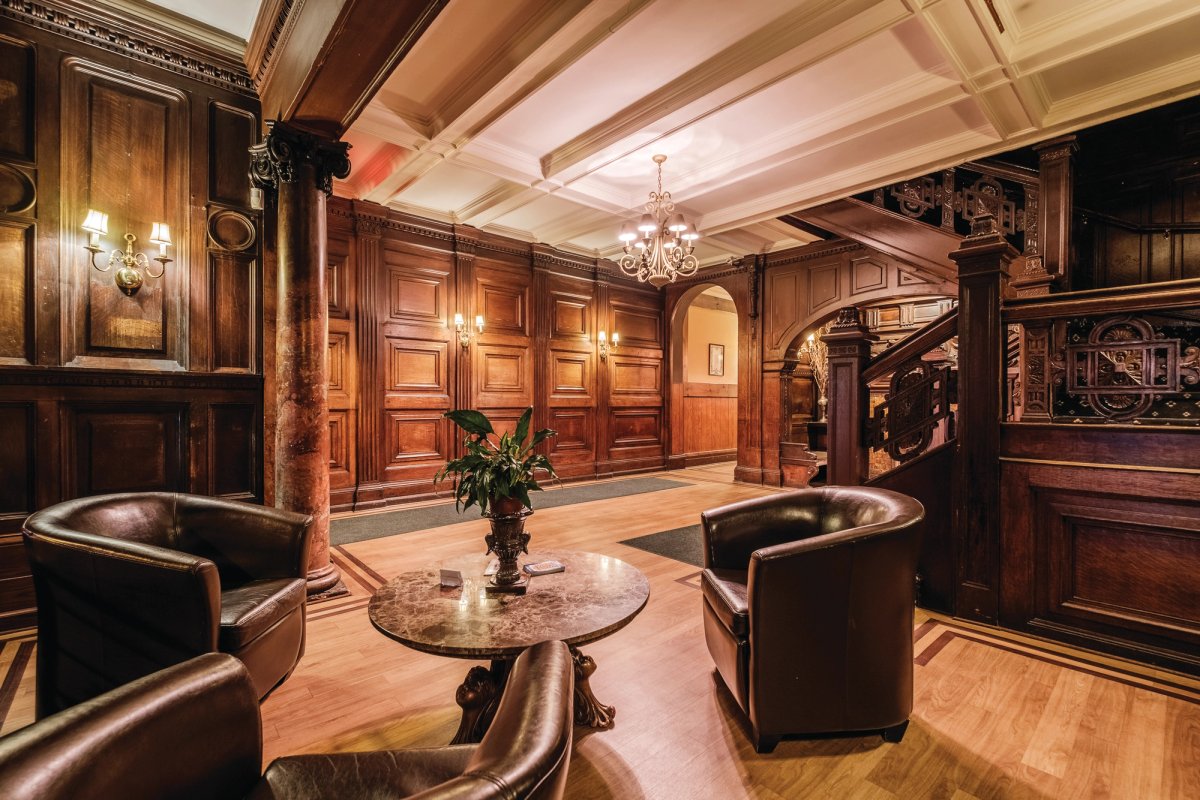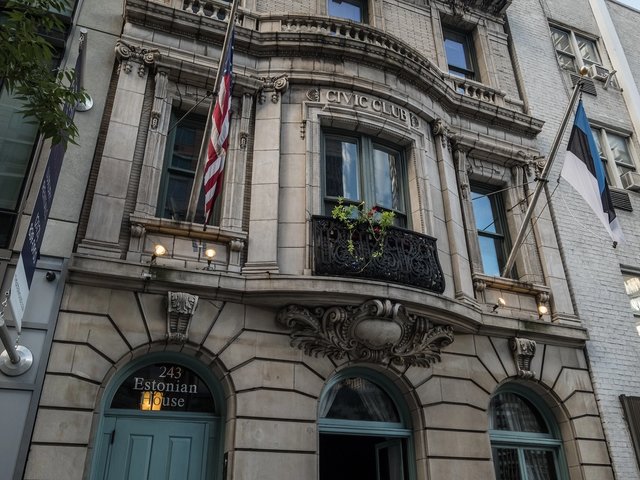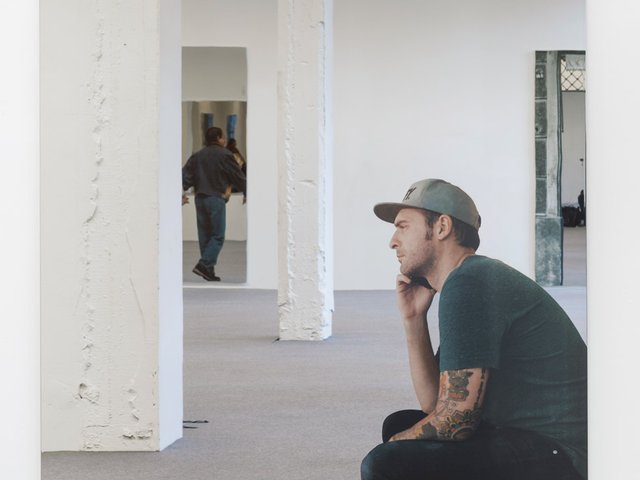Esther, a new art fair (1-4 May) launching concurrently with Frieze New York at The Estonian House, is inspired by both the pop-up arts programme Basel Social Club and the homeland of its founders, Margot Samel—whose eponymous gallery is based in Tribeca—and Olga Temnikova, of the Tallinn-based gallery Temnikova & Kasela.
Estonia, a tiny country of just over 1.3 million, punches above its weight geopolitically (it borders Russia), technologically (it is known for tech start-ups and e-citizenship) and culturally. Samel and Temnikova envision the Estonian House as an international arts destination ideally suited to hosting an “art-fair alternative” that feels more like a “collaborative exhibition”. The venue is a 19th-century Beaux Arts building on busy East 34th Street. The private club with wood-panelled walls, a grand staircase and a warren of rooms, including a restaurant with Estonian cuisine—the fair will be “a good reason to try Estonian food”, says Temnikova—is the “[best] known cultural centre for Estonians outside of Estonia”, says Samel.
Temnikova, an artist and art-fair veteran who sensed the need for more options in the sector, suggested the venture to Samel last year. “European galleries are struggling; they need to pay to be [in New York]. New York galleries have spaces but need to pay to be at fairs,” Temnikova says.
As well as offering an alternative model, Esther’s founders want to promote the international art scene to Estonian collectors and Estonia to the world. “We are a developing economy,” Temnikova says. “I have very nice local collectors, [but] for me inviting galleries from other countries [to Estonia] is not so easy. We were thinking about the novelty of it: this beautiful house, the fact that galleries don’t have to pay so much.”
Funding from the Estonian government means that rates are lower than at many fairs, with a display space costing just $1,500. “I just got a bill from another art fair for lights that was $2,500,” says Samel, who worked for Kendall Koppe as the Scottish gallery transitioned from a non-profit into a commercial gallery, an experience that “has informed my programme in so many ways”. She met Temnikova at the Art Basel satellite fair Liste more than a decade ago.
“We started discussing from the beginning that it’s important to have a price point that allows galleries to be a bit more experimental,” Samel says, approaching it “more as an exhibition with presentations by various galleries” and “no walls dividing galleries” apart from one new wall in the main space. The goal is also to “flatten some of these hierarchies between galleries”, she adds, so that “emerging galleries are not all placed downstairs by the bathrooms and expected to take the weight of the experimental side”.
International roster
Kendall Koppe is among two-dozen participants, which include several New York and London spaces as well as galleries from the Midwest, Europe and China. Richard Saltoun of London and New York is showing works by Jan Wade. Anton Svyatsky’s New York gallery Management is showing Vladislav Markov. Gallery Artbeat from Tbilisi is showing paintings by the young Georgian artist Tamo Jugeli. Kogo Gallery, which is based in Tartu, near Estonia’s border with Russia, is showing works by Anna Mari Liivrand and Laura Põld. Milwaukee’s Green Gallery is showing works by the Bahamas-born artist Dominique Knowles. And Shanghai’s Bank gallery is showing works by the Dominican artist Bony Ramirez and the German-born artist Oliver Herring. Temnikova & Kasela is showing works by the Estonian artist Jaanus Sama and the Ukrainian self-taught artist Nina Vynnyk, who flourished creatively in Estonia. Samel is showcasing the Estonian artist Kris Lemsalu, who now has a show at her gallery, and the US painter Bertha Leonard.
In addition to her European art-fair credentials, Temnikova has been a member of the expert committee of Moscow’s Cosmoscow art fair, which has not had international exhibitors since Russia launched its invasion of Ukraine in February 2022. Temnikova & Kasela had a booth there until 2021, but Temnikova no longer travels to Russia, which regularly threatens Estonia, a European Union and North Atlantic Treaty Organization member, over its opposition to the invasion.




